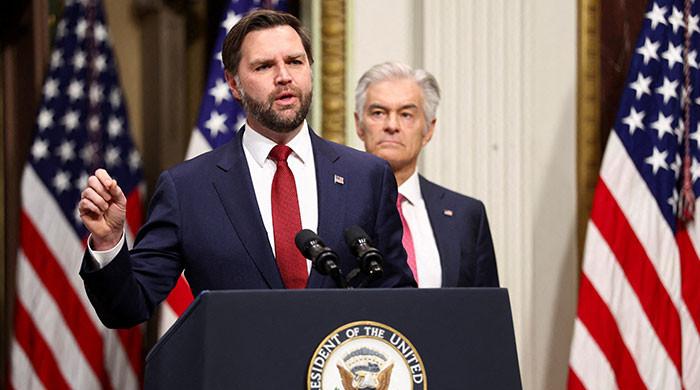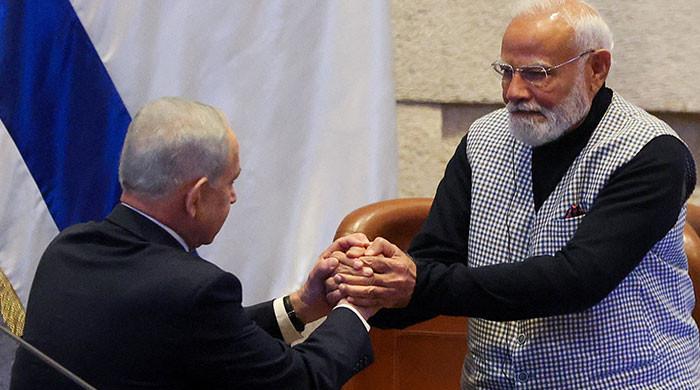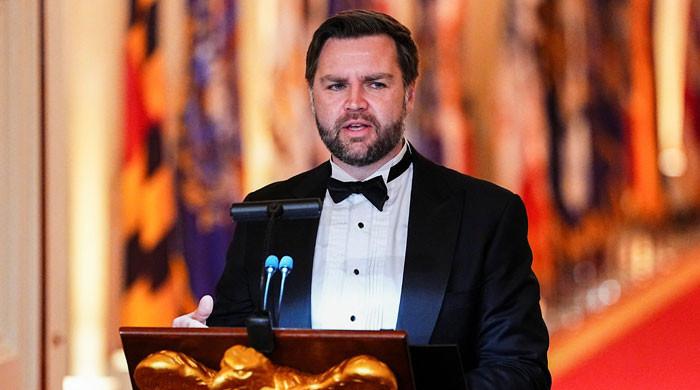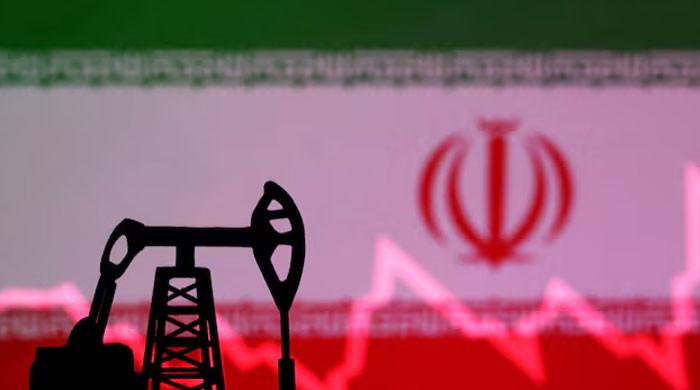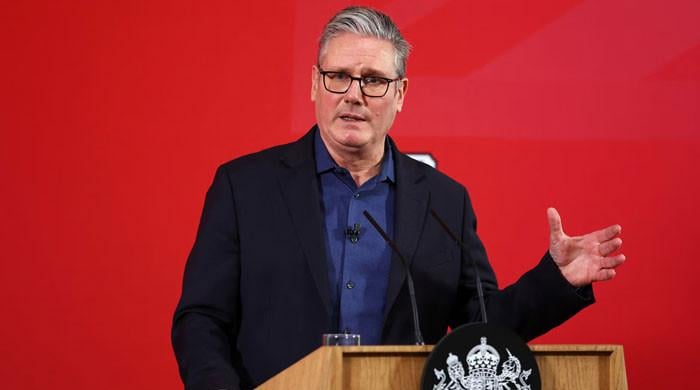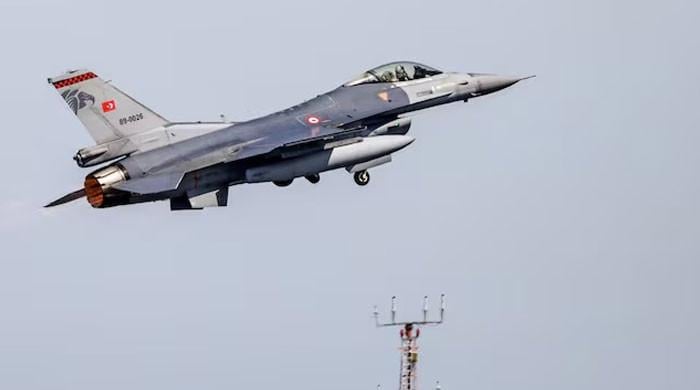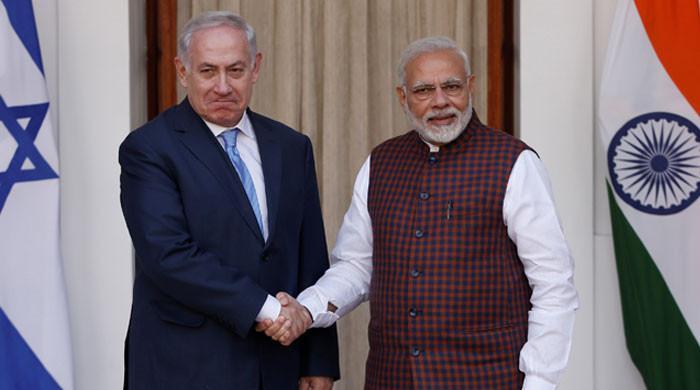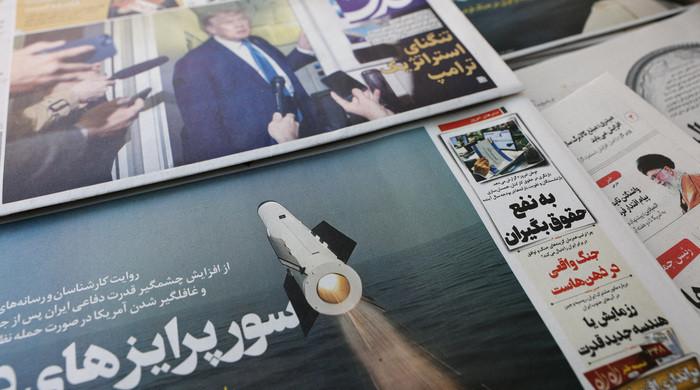An unprecedented Congressional hearing on Kashmir
The unprecedented Congressional hearing on Kashmir proved that if Pakistani- and Kashmiri-Americans lobbied for a cause, they could ditch India in Congress
November 03, 2019
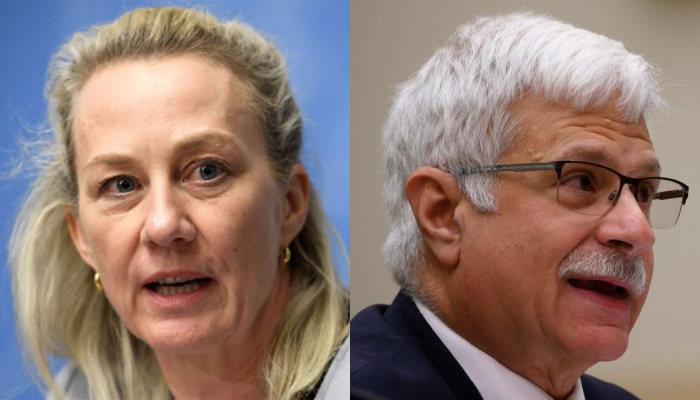
"If [former] president Obama had declared Texas as a federal territory or President Trump did the same to my state California, there would be considerable resistance in the abolition," Representative Brad Sherman remarked sarcastically during a historic hearing on Kashmir in the US Congress.
The Trump administration was in the dock as US House Subcommittee on South Asia relentlessly grilled the officials on India policy. The acting assistant state secretary, Alice Wells, kept herself as brief as possible and even resorted to occasionally silently nodding to evade further questioning.
Wells’ State Department colleague, Robert Destro, had his maiden appearance, coming in with rich experience as a human rights advocate and civil rights attorney. However, he found himself in an awkward position to defend an administration, mum on the Indian abuses in the occupied Kashmir.
In fact, Destro even had a slip of tongue when, instead of South Asia, he said South Africa but only this mistake went unnoticed.
The Capitol Hill was witnessing such a historic moment after almost three decades. Even Dr Asad Majeed Khan, the Pakistani ambassador to the United States who takes pride for long working on the Pak-American relations, admitted that he hadn’t witnessed such a hearing in his lifetime.
ALSO READ: US Congressional sub-committee holds hearing on occupied Kashmir
In her prepared statement, Wells tried her best to broaden the scope of the hearing, touching upon — with well-chosen words — the precarious situation in Kashmir. She went on to speak about overall human rights situation in Pakistan, Bangladesh, Myanmar, and other regional countries.
Wells' tactic, unfortunately, did not work and Kashmir dominated in both sessions of a hearing that lasted almost five hours. She knew well that Trump’s hollow words on Kashmir were worth nothing and, therefore, expected the onslaught.
Sherman, the committee's head, cheered her up by saying: "Alice Wells has been here so often that we really ought to give her an office space." But, in the same breath, he set the direction by making clear to both representatives that the entire world was "focused on what’s happening in Kashmir".
For some, it came as a surprise as Sherman was perceived to be a pro-Indian congressperson. After all, he holds another important portfolio of being the co-chair of the Congressional Caucus on India and Indian Americans. As the hearing progressed, however, those — who had any reservations that a Kashmir hearing under him would be tilted towards New Delhi — breathed a sigh of relief.
With his ever-polite tone, powerful words, and crafted sentences, Sherman was at his peak of eloquence. Without being diplomatic about the situation, the chair said: "Kashmir is undisputedly the most dangerous geopolitical flash-point in the world as it involves two nuclear power countries that have gone to a number of wars."
Sherman made it clear to the world that "India's action was not in response to [any] terrorist’s action".
Weeks before the hearing, Sherman had met a number of Kashmiri-Americans and assured them that their voices will be heard. During one such meeting in Los Angeles at Dr Asif Mahmood’s residence, he told me that "more of our focus would be on the immediate things that are happening on the ground".
He, regardless, added: "But, certainly, there is no way to avoid a discussion of article 370 which started the whole process."
His statements were enough to create the required buzz.
Even the top congresspeople made sure to attend the testimony. In fact, the chairperson of the US House Committee on Foreign Affairs, Representative Eliot L. Engel, also took pain for being there in the opening session despite having landed in Washington a few hours ahead of the hearing.
Engel admitted that South Asia was witnessing an alarming trend. He lambasted the US response to India's move to revoke Article 370 of its Constitution and remarked: "Trump Administration is giving a free pass to the countries that violate human rights or democratic norms."
READ MORE: Thousands take to street in Geneva to protest Indian brutality in Kashmir, Punjab
The biting words from Democrats-led committee forced even the Republican congresspeople to take at least some position against New Delhi. Its former chair, Brian Fitzpatrick, posed questions on detentions whereas Florida Representative Theodore Scott Yoho stressed that the "restrictions on individuals should be removed as quickly as possible".
Yoho said the US should be facilitating partners "in any capacity it is asked for". Utah Representative John Curtis, another Republican, wanted the truth to come out.
Democrat Congressperson Anthony Brown, who also serves as the vice-chair of the House Committee on Armed Services, inquired if the crisis could lead to a military conflict between India and Pakistan. When Wells described the tense border situation, he asked if the US intended to use any leverages or tools, including economic (sanctions) to influence India’s behaviour.
CIA operations officer-turned-politician, Representative Abigail Spanberger, also came hard on Alice, demanding objective and verifiable information, not the distorted version of the Indian Prime Minister Nadernra Modi's government.
Spanberger challenged Wells and Destro with facts as her Kashmiri constituents had told her heartbreaking stories.
Spanberger cited the example of a family of 10 who were burnt alive in their house as the fire brigade was unable to respond. She also noted the plight of a Kashmiri woman who could only visit a doctor after passing through six checkpoints. Being the mother of a little child, she was appalled to learn that children as young as 10 were held in Kashmir.
Sherman appreciated her questioning techniques.
Representative Pramila Jayapal, the first Indian-American woman ever to be elected to the US House, came with a scathing criticism as well.
With information based on sources from her ancestral country, Jayapal informed the house that since August 5, over 4000 Kashmiris had been arrested. She disclosed that police had also detained 144 children, including a nine-year old.
It was Congressperson David Cicilline who dropped the bombshell, when the Rhode Island Democrat informed the House that the Indian forces were using one of the most horrific tactic to arrest potential protesters.
Cicilline had also come to the US Capitol after having a very disturbing meeting with some of his Kashmiri constituents. To him, everything claimed by Wells as well as Delhi was flying away from the face of the logic.
ALSO READ: Pakistan rebukes New Delhi's move to show AJK, GB as part of India
The congressperson declared that the Indian forces were using pellet guns not only to maim and blind people but for another sinister design too — that the Indian forces were apprehending innocent Kashmiris with pellet marks under the false allegations that they had participated in the protests.
Wells tried to convince the congressperson that India had stopped using such guns since 2017. But he countered that he had information and asked her to look into it. Cornered, the secretary nodded in affirmative.
Long before Cicilline concluded his arguments, a round of applause rang out in the hall.
Democrat Congressperson Tomasz Malinowski inquired Wells and Destro if they have a definite number of how many Kashmiris had been rounded up so far. Both were clueless. Representative Steve Chabot expressed his worries by asking when the prisoners would be released but found the panel beating about the bush.
Congressperson Sheila Jackson Lee, the co-chair of the Congressional Pakistan Caucus who had attended the Howdy Modi rally in Texas last month, also spoke on the occasion, boldly defending Pakistan and asking the panel if they saw the Kashmir situation as a humanitarian crisis.
Secretary Destro, who was less diplomatic, responded in affirmative and, went on to say that "to the individual families involved, it’s a disaster".
A furious Lee asked the diplomats what could the US "do more so than expressing disappointment?"
Wells attempted to defend Washington’s mission to India, saying: "We are going to argue for the road-map to restore political life in Kashmir. And, the voices of Kashmiris should be heard as decisions are taken about the future political make-up."
The Pakistan Caucus co-chair remarked that she would like to see the Pakistani government as part of the solution and not the part of the problem.
The House members were equally vocal against India for not allowing American diplomats, including Karachi-born Senator Chris Von Houglan visit occupied Kashmir. Houglan’s only fault was his desire to visit Srinagar and be an eyewitness to what was happening in the Himalayan valley, where blackout has continued since August 5.
The assistant state secretary admitted that despite having great relationship between the two countries, no American had been to the valley since April. The congresspersons commented that if New Delhi had nothing to hide, there was nothing to fear by allowing respected visitors to the state.
Consequent to that, Sherman took the charge again. The chair remarked sarcastically that there were no terrorists working for the Department of State or in American embassies so, then, why on earth were the US diplomats not allowed.
The temperature shot to an extreme and Alice was no more in wonderland.
Nevertheless, she again tried to dodge questions but the ever-cool Sherman came with a plain example, saying: "If some country in the world says that everybody can get into our country but protestants have to wait for six months as we do a review … won’t it clash with American values?
"Don’t we stand up for American being treated as the same’?
Wells' face turned red but Sherman bulldozed on. He asked if Washington had urged New Delhi to treat all American-Indians the same even if they were from a variety of different national origins. The State Department official admitted that she didn’t know the answer.
So Sherman went a step ahead and politely inquired: "Can I count on you to bring this up with Indian government?" Responding in affirmative, Wells made a narrow escape.
By now, however, Lee had taken up the baton. The congressperson asked: "Have you denied any reputable member of the Indian official or even an Indian reporter a visit to the USA?" The diplomat had little option but to admit ‘No’.
The enraged Texan observed that "the back of the US government should need to get a little bit stronger to be able to demand that their citizens have a free movement in a democratic nation".
Wells interjected, saying India had told Washington that it was not the right time to visit valley. To which an infuriated Congressperson David Trone intervened, stressing that it seemed to be "the right time" as there is a reason to worry about abuse.
Wells stated that the US policy on Kashmir had not changed yet also admitted that "it’s not the revocation of Article 370 that we cared about". Finding Trump’s policies belittling America, Engel pointed out that, now, too many politicians around the world have expressed delight that the US did not interfere anymore.
Baseless defences by Wells and Destro led the congressperson to speak unreservedly. Representative Mike Levin openly told the House that it was "hard for me to take seriously the argument that this is being done for the economic development of Kashmir".
Congressperson Susan Wild agreed with Levin. The former attorney found no justification either for the crackdown on journalists and political workers or the lack of transparency. Even the longest-serving Indian-American Amerish Babulal — better known as Ami Bera — advocated that reporters should be allowed to report ground realities.
Before the hearing came to a close, the notorious Indian government’s brutalities in other states had also come to light.
African-American Congresswoman Ilhan Omar savagely attacked the Modi administration. To her, the situation in Assam was as bad as that of Kashmir, if not worse. And, in both cases, the world has witnessed impunity.
Omar bravely told the House that in Assam, almost two million people are being asked to affirmatively appreciate their citizenship and that that was an anti-Muslim pogrom. She jolted the house by declaring that it was similar to how the Rohingya genocide had started.
With that, the Somalia-born lawmaker said the US did not please other democracies. "We have to raise our concerns. And, there should not be any exception."
Congressperson Ted Liu expanded on Omar's views by not only raising concerns about the Muslims of Assam but also lamented that the Modi government was prosecuting Christians as well. Congressperson Chrissy Houlahan said there was something going on in Kashmir that did not reflect the American values.
The unprecedented situation in Kashmir had no comparison. Congressperson Ruben Gallegeo said such a blackout was not even observed during war in Iraq or Afghanistan.
During the afternoon secession, a few non-officials also testified but, fearing reprisal, the Kashmiri Muslims avoided their testimony. The critical hearing also saw the appearance of Ravi Batra, the chair for the National Advisory Council for South Asian Affairs. Without giving a reason, he tried to portray Modi’s action as "judicious".
Another Indian, Aarti Tikoo Singh, tried to shift the blame on terrorists. Hardly anyone paid attention to her biased presentation.
Nitasha Kaul, the associate professor of politics and international relations at the University of Westminster, remarked that Kashmir was not a communal issue but was being communalised. She said Kashmiris were under a collective punishment.
Anthropologist Angana Chatterji, too, castigated Modi. She said many in Kashmir feared that the intent of this demographic change may be culturally and physically genocidal.
Some others criticised the human rights situation in Pakistan as well. An activist, Fatima Gul, raised the issues of abduction and marriages of young Hindu girls in Sindh.
Amnesty International's Asia Pacific Advocacy Manager, Francisco Bencosme, came out with the naked truth about Indian atrocities in Kashmir and asked the House to pressurise India to allow and document the human rights abuses. "The reality on the ground in Kashmir is very different from the narrative of ‘normalcy’ set forth by India," he said.
Only one Pakistani-American testified before the committee.
Sherman introduced Dr Asif Mahmood to the hearing, saying he was a candidate for the insurance commissioner in California and had more votes than any other Muslim-American in history. Widely recognised as a strong advocate for Muslim-Americans, Dr Mahmood’s presence raised the eyebrows of the pro-Indian lobby.
Dr Mahmood thanked Sherman’s courage and wisdom, as well as his leadership in holding such a crucial hearing. He said; "Kashmiris are not alone and we will stand with them till each and every one of them get their basic human rights secured’.
The Pakistani-American reminded the House that numerous Kashmiris feared extreme backlash, so, to represent them, he had picked up less vulnerable witnesses. Dr Mahmood concluded his testimony by saying: ‘It can be only Trump who can say welcome to Modi who was banned coming to the United States a few years ago.’
Dr Mahmood had earlier played a crucial role in organising a grand meeting of Congresspersons’ staff members. That had helped the latter's staffers prepare the congresspersons grill the panel. They came up with many questions that turned out to be bouncers for both Wells and Destro.
The Wells-Destro duo must have thanked the time restraint since had time allowed, 20 more congresspeople would have fired critical questions at them.
Representatives Judy Chu and Tony Cardenas, as well as many others, had waited long for their turn, only to have to leave at the end. After all, as per the stated procedure, members of the House Committees were given a preference to speak first.
The unprecedented hearing proved that if a few Pakistani- and Kashmiri-Americans lobbied for a cause in a dedicated manner, they could ditch India in Congress — if not in the White House.




